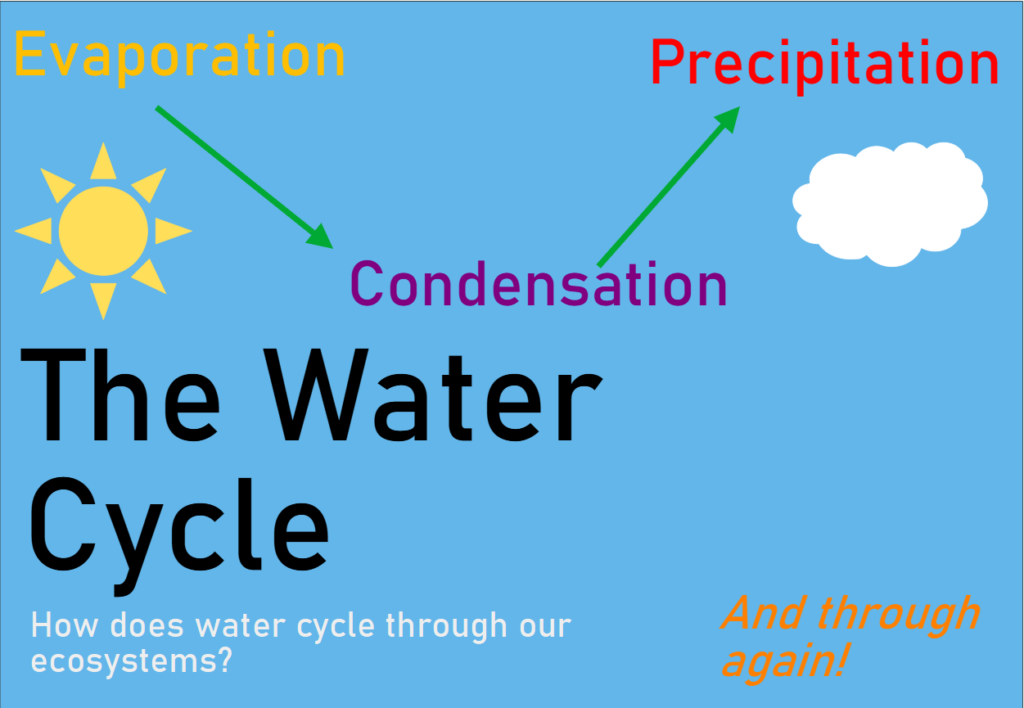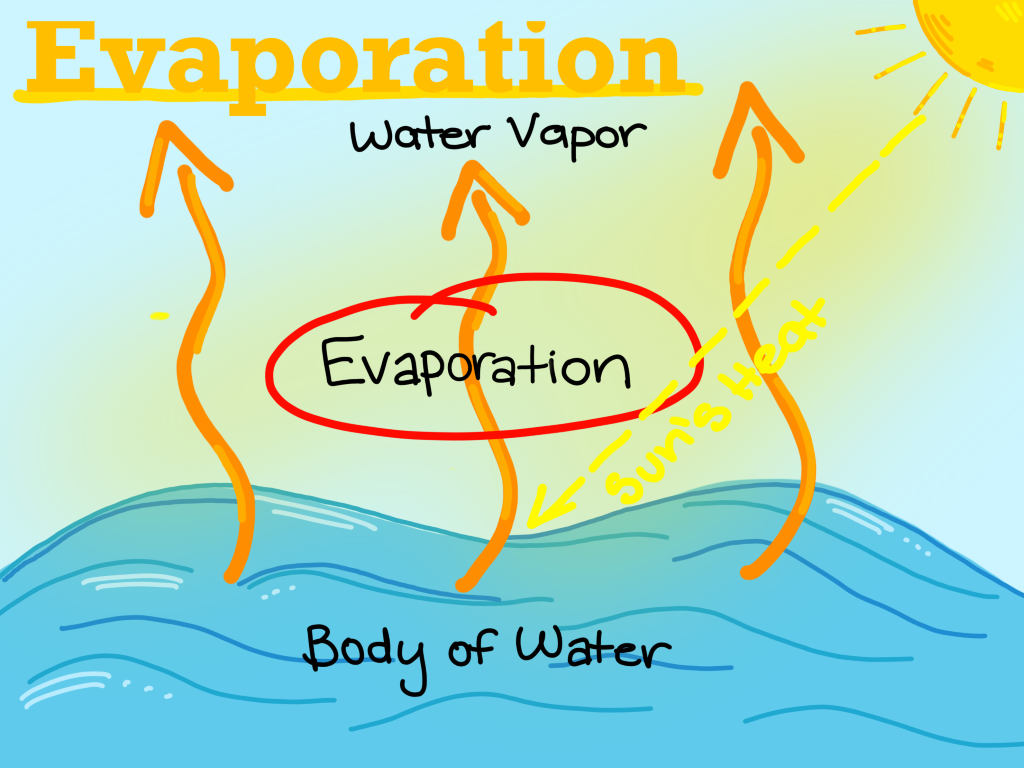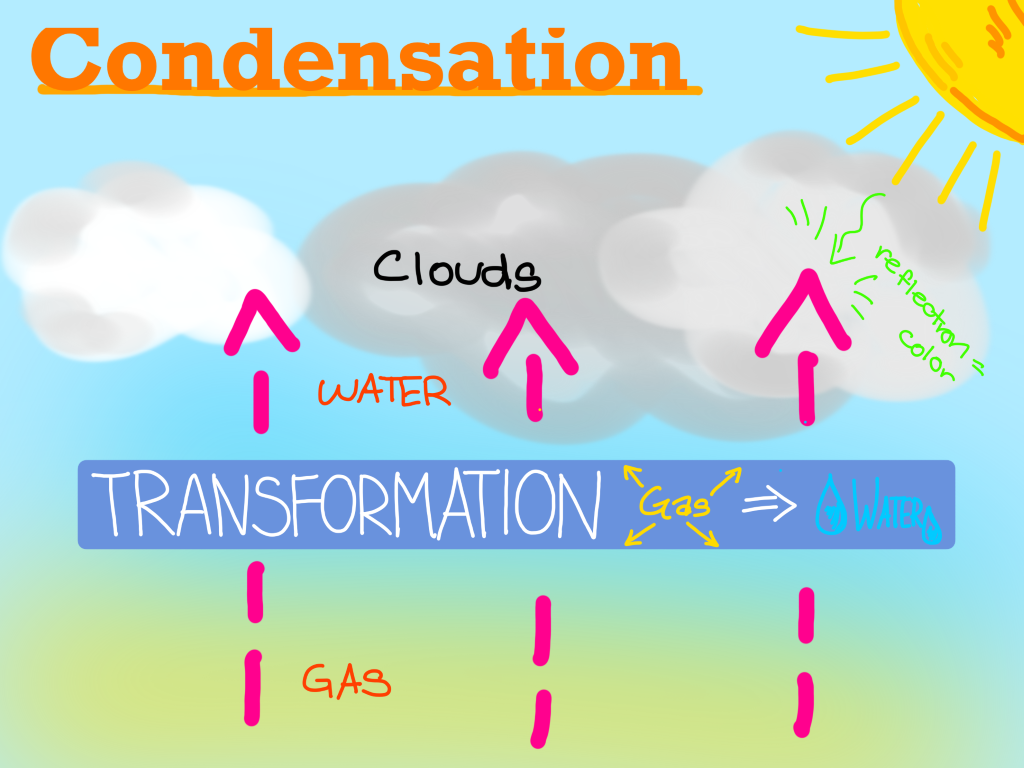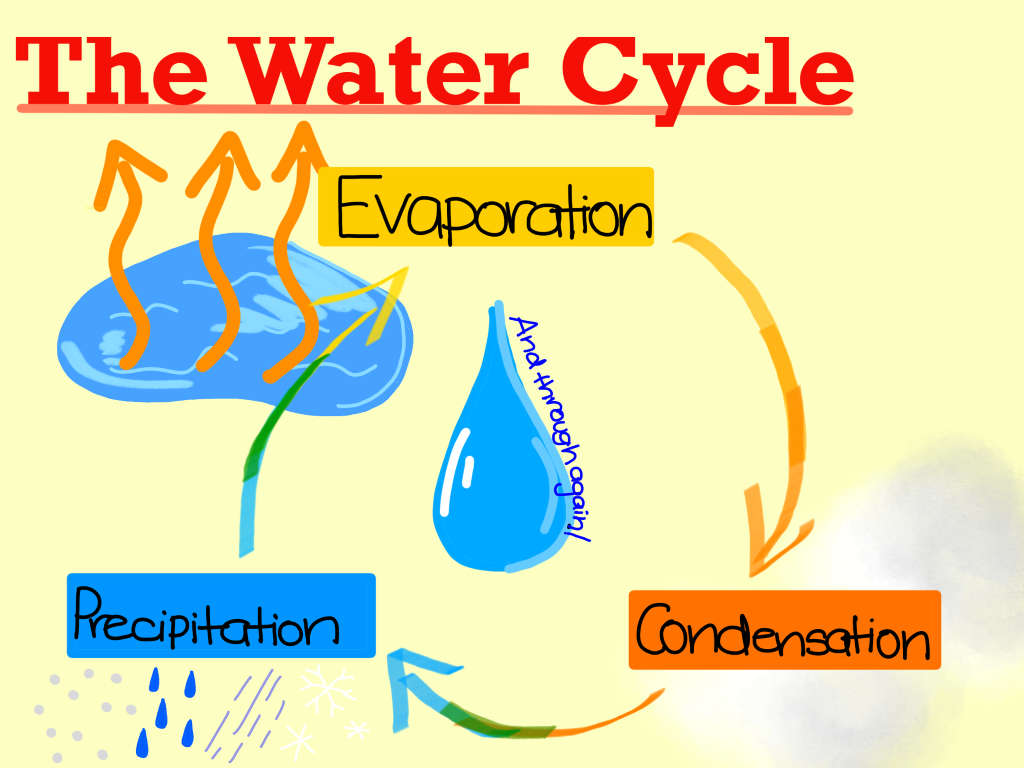
Water Cycle
Did you know that you might be drinking water from prehistoric times? Water cycles through our ecosystems and homes many times due to the water cycle, the path water takes repeatedly, which is not a one-time resource.
Evaporation
There are many bodies of water such as lakes and rivers. The first stage of the water cycle is when the sun’s rays shine down on these bodies of water, heating them up – which when the temperature is high enough, causes evaporation. This increase in energy (through temperature) causes the water to transform into vapor or steam from a liquid state and goes up into the air.

Condensation
Once this water vapor is up our atmosphere, the cooler temperatures can cause it to condense into clouds. It transforms back to a liquid state from being a gas (vapor), gathering into clumps of water droplets up in the air. But how can water appear to be gray or white, even if it is a clear substance? The answer lies in the fact that they are reflecting then sunlight!

Precipitation
As the clouds gather increasing amounts of water, the water may become too heavy to continue holding up in the sky. When this happens, the only option is to release the water back down to the ground through precipitation. This is most commonly through rain, but can also include snow, sleet, or hail.

And through again!
When the water falls back to the ground, it will probably run down to the lowest points on the ground surface – back to those lakes, rivers, oceans, and streams. From there, the cycle is able to repeat numerous times, going back through the evaporation, condensation & precipitation process. As a result, the water you drink and use today can date back to past decades, centuries, or even to prehistoric times!
